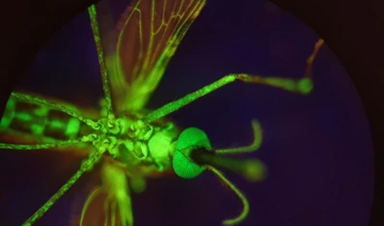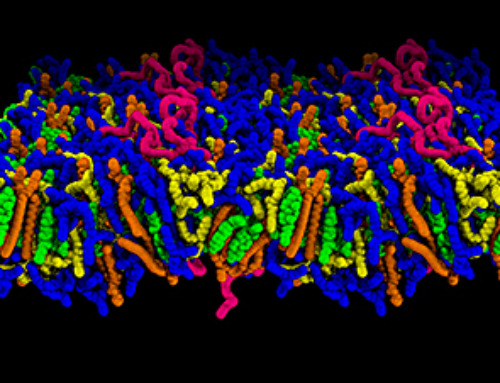Nitisinone, a drug for rare diseases, kills mosquitoes when present in human blood and may become a new tool to fight malaria, offering longer-lasting, environmentally safer effects than ivermectin.
Controlling mosquito populations is a key strategy in the fight against malaria.
Currently, several approaches are used to reduce mosquito numbers and limit malaria transmission. One method involves the use of the antiparasitic drug ivermectin. When mosquitoes feed on blood containing ivermectin, their lifespan is shortened, which can reduce the spread of the malaria parasite.
However, ivermectin presents challenges. It is toxic to the environment, and its widespread use in both humans and animals to treat parasitic infections raises the risk of drug resistance.
Now, a study published in Science Translational Medicine has identified a promising alternative. Researchers discovered that when people take the medication nitisinone, their blood becomes lethal to mosquitoes, offering a potential new tool for mosquito control and malaria prevention.
How Nitisinone Works
"One way to stop the spread of diseases transmitted by insects is to make the blood of animals and humans toxic to these blood-feeding insects," said Lee R. Haines, associate research professor of biological sciences at the University of Notre Dame, honorary fellow at the Liverpool School of Tropical Medicine and co-lead author of the study. "Our findings suggest that using nitisinone could be a promising new complementary tool for controlling insect-borne diseases like malaria."
Typically, nitisinone is a medication for individuals with rare inherited diseases — such as alkaptonuria and tyrosinemia type 1 — whose bodies struggle to metabolize the amino acid tyrosine. The medication works by blocking the enzyme 4-hydroxyphenylpyruvate dioxygenase (HPPD), preventing the build-up of harmful disease byproducts in the human body. When mosquitoes drink blood that contains nitisinone, the drug also blocks this crucial HPPD enzyme in their bodies. This prevents the mosquitoes from properly digesting the blood, causing them to quickly die.
The researchers analyzed the nitisinone dosing concentrations needed for killing mosquitoes, and how those results would stack up against ivermectin, the gold standard ectoparasitic drug (medication that specifically targets ectoparasites such as mosquitoes).
"We thought that if we wanted to go down this route, nitisinone had to perform better than ivermectin," said Álvaro Acosta Serrano, professor of biological sciences at Notre Dame and co-corresponding author of the study. "Indeed, nitisinone performance was fantastic; it has a much longer half-life in human blood than ivermectin, which means its mosquitocidal activity remains circulating in the human body for much longer. This is critical when applied in the field for safety and economical reasons."
Testing Nitisinone in Humans
The research team tested the mosquitocidal effect of nitisinone on female Anopheles gambiae mosquitoes, the primary mosquito species responsible for spreading malaria in many African countries. If these mosquitoes become infected with malaria parasites, they spread the disease when they feast on a human.
To evaluate how the drug affected the mosquitoes when fed fresh human blood containing nitisinone, researchers collaborated with the Robert Gregory National Alkaptonuria Centre at the Royal Liverpool University Hospital. The center was performing nitisinone trials with people diagnosed with alkaptonuria, who then donated their blood for the study. Those taking nitisinone were found to have blood that was deadly to mosquitoes, which Haines describes as having a "hidden superpower."
The research team collected data on how the drug was metabolized in peoples' blood, allowing the team to fine-tune their modeling and provide pharmacological validation of nitisinone as a potential mosquito population control strategy.
Nitisinone was shown to last longer than ivermectin in the human bloodstream, and was able to kill not only mosquitoes of all ages — including the older ones that are most likely to transmit malaria — but also the hardy mosquitoes resistant to traditional insecticides.
"In the future, it could be advantageous to alternate both nitisinone and ivermectin for mosquito control," Haines said. "For example, nitisinone could be employed in areas where ivermectin resistance persists or where ivermectin is already heavily used for livestock and humans."
Next Steps and Broader Impacts
Next, the research team aims to explore a semi-field trial to determine what nitisinone dosages are best linked to mosquitocidal efficacy in the field.
"Nitisinone is a versatile compound that can also be used as an insecticide. What's particularly interesting is that it specifically targets blood-sucking insects, making it an environmentally friendly option," Acosta Serrano said.
As an unintended benefit, extending the use of nitisinone as a vector control tool could consequently increase drug production and decrease the price of the medication for patients suffering from rare genetic diseases in the tyrosine metabolism pathway.
Reference: "Anopheles mosquito survival and pharmacokinetic modeling show the mosquitocidal activity of nitisinone" by Lee R. Haines, Anna Trett, Clair Rose, Natalia García, Marcos Sterkel, Dagmara McGuinness, Clément Regnault, Michael P. Barrett, Didier Leroy, Jeremy N. Burrows, Giancarlo Biagini, Lakshminarayan R. Ranganath, Ghaith Aljayyoussi and Álvaro Acosta-Serrano, 26 March 2025, Science Translational Medicine.
DOI: 10.1126/scitranslmed.adr4827
The study was funded by the UK Medical Research Council, Biotechnology and Biological Sciences Research Council, Wellcome Trust Institutional Strategic Support Fund, the Medical Research Council Doctoral Training Partnership and the University of Glasgow Wellcome Centre for Integrative Parasitology.
News
Scientists Finally Solve a 30-Year-Old Cancer Mystery Hidden in Rye Pollen
Nearly 30 years after rye pollen molecules were shown to slow tumor growth in animals, scientists have finally determined their exact three-dimensional structures. Nearly 30 years ago, researchers noticed something surprising in rye pollen: [...]
NanoMedical Brain/Cloud Interface – Explorations and Implications. A new book from Frank Boehm
New book from Frank Boehm, NanoappsMedical Inc Founder: This book explores the future hypothetical possibility that the cerebral cortex of the human brain might be seamlessly, safely, and securely connected with the Cloud via [...]
How lipid nanoparticles carrying vaccines release their cargo
A study from FAU has shown that lipid nanoparticles restructure their membrane significantly after being absorbed into a cell and ending up in an acidic environment. Vaccines and other medicines are often packed in [...]
New book from NanoappsMedical Inc – Molecular Manufacturing: The Future of Nanomedicine
This book explores the revolutionary potential of atomically precise manufacturing technologies to transform global healthcare, as well as practically every other sector across society. This forward-thinking volume examines how envisaged Factory@Home systems might enable the cost-effective [...]
A Virus Designed in the Lab Could Help Defeat Antibiotic Resistance
Scientists can now design bacteria-killing viruses from DNA, opening a faster path to fighting superbugs. Bacteriophages have been used as treatments for bacterial infections for more than a century. Interest in these viruses is rising [...]
Sleep Deprivation Triggers a Strange Brain Cleanup
When you don’t sleep enough, your brain may clean itself at the exact moment you need it to think. Most people recognize the sensation. After a night of inadequate sleep, staying focused becomes harder [...]
Lab-grown corticospinal neurons offer new models for ALS and spinal injuries
Researchers have developed a way to grow a highly specialized subset of brain nerve cells that are involved in motor neuron disease and damaged in spinal injuries. Their study, published today in eLife as the final [...]
Urgent warning over deadly ‘brain swelling’ virus amid fears it could spread globally
Airports across Asia have been put on high alert after India confirmed two cases of the deadly Nipah virus in the state of West Bengal over the past month. Thailand, Nepal and Vietnam are among the [...]
This Vaccine Stops Bird Flu Before It Reaches the Lungs
A new nasal spray vaccine could stop bird flu at the door — blocking infection, reducing spread, and helping head off the next pandemic. Since first appearing in the United States in 2014, H5N1 [...]
These two viruses may become the next public health threats, scientists say
Two emerging pathogens with animal origins—influenza D virus and canine coronavirus—have so far been quietly flying under the radar, but researchers warn conditions are ripe for the viruses to spread more widely among humans. [...]
COVID-19 viral fragments shown to target and kill specific immune cells
COVID-19 viral fragments shown to target and kill specific immune cells in UCLA-led study Clues about extreme cases and omicron’s effects come from a cross-disciplinary international research team New research shows that after the [...]
Smaller Than a Grain of Salt: Engineers Create the World’s Tiniest Wireless Brain Implant
A salt-grain-sized neural implant can record and transmit brain activity wirelessly for extended periods. Researchers at Cornell University, working with collaborators, have created an extremely small neural implant that can sit on a grain of [...]
Scientists Develop a New Way To See Inside the Human Body Using 3D Color Imaging
A newly developed imaging method blends ultrasound and photoacoustics to capture both tissue structure and blood-vessel function in 3D. By blending two powerful imaging methods, researchers from Caltech and USC have developed a new way to [...]
Brain waves could help paralyzed patients move again
People with spinal cord injuries often lose the ability to move their arms or legs. In many cases, the nerves in the limbs remain healthy, and the brain continues to function normally. The loss of [...]
Scientists Discover a New “Cleanup Hub” Inside the Human Brain
A newly identified lymphatic drainage pathway along the middle meningeal artery reveals how the human brain clears waste. How does the brain clear away waste? This task is handled by the brain’s lymphatic drainage [...]
New Drug Slashes Dangerous Blood Fats by Nearly 40% in First Human Trial
Scientists have found a way to fine-tune a central fat-control pathway in the liver, reducing harmful blood triglycerides while preserving beneficial cholesterol functions. When we eat, the body turns surplus calories into molecules called [...]





















